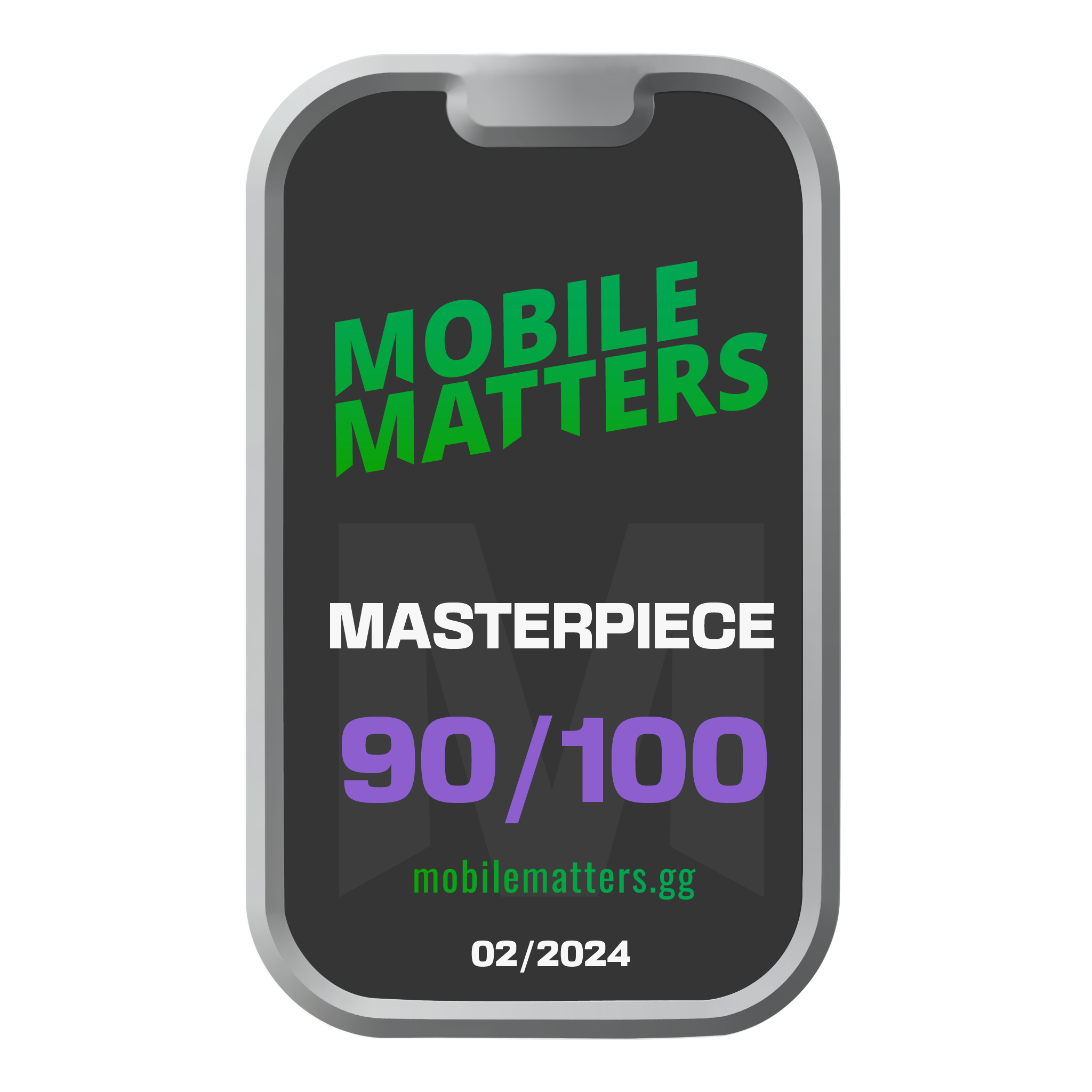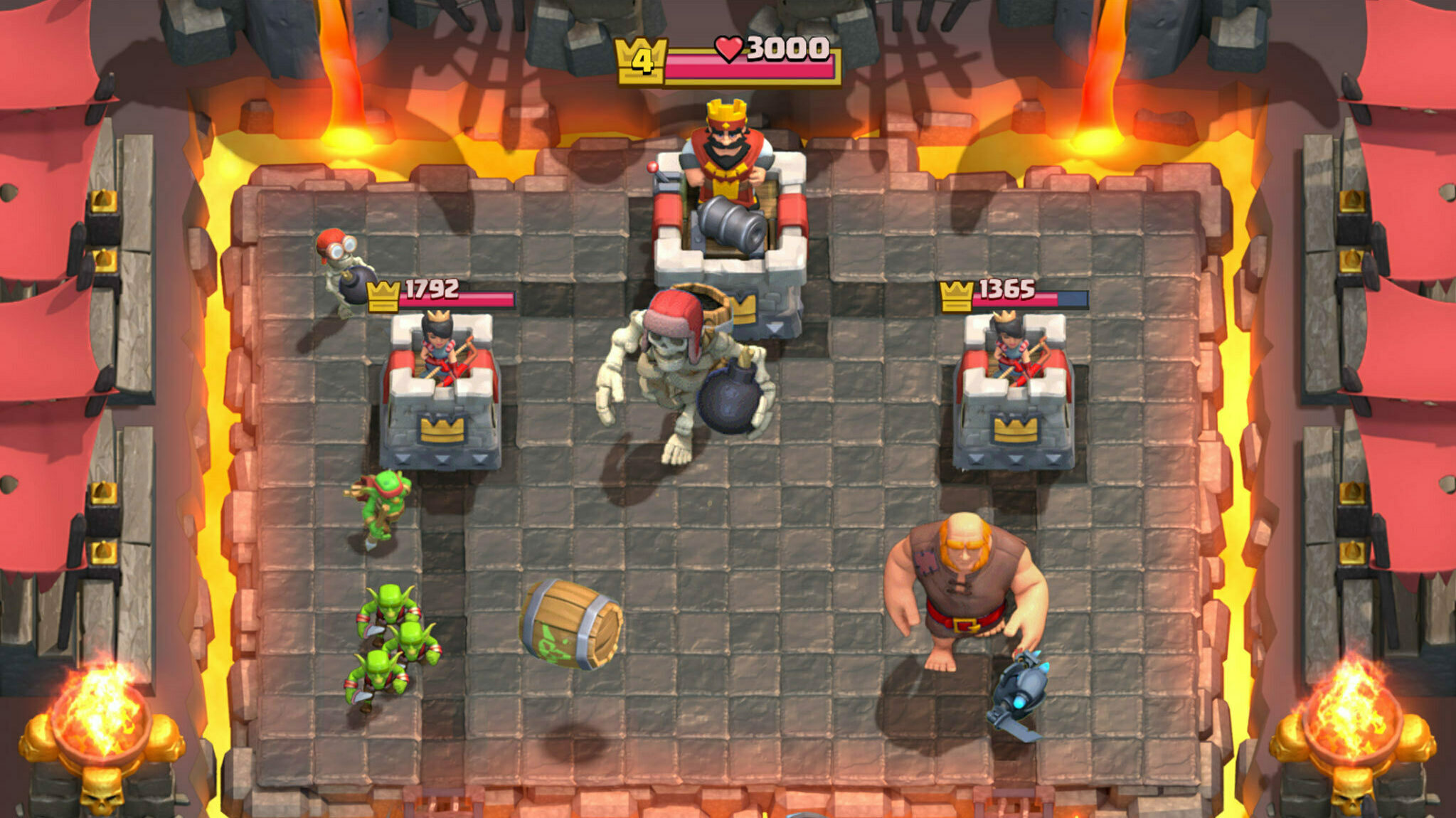On MobileMatters, amongst news, guides and videos, you'll also find mobile gaming tests. You eventually might wonder how we test mobile games and why some testing categories hold more weight than others – let's bring some light into the dark!

When it comes to testing mobile games, we're convinced that a comprehensive and structured system is crucial for assessing various aspects of a game's design and functionality. Our methodology for evaluating mobile games is built around a precise scoring system, with a theoretical maximum score of 100 points.
This score is distributed across six key categories: Gameplay, Performance, Visual Design, Sound, Uniqueness and Microtransactions. Each category is assigned a specific weight based on its importance to the overall gaming experience. Here's how we break down each category.
Gameplay (30/100 Points)
The Gameplay category holds the highest weight, with 30 out of 100 points, emphasizing its importance in providing an engaging and enjoyable experience. This section evaluates the intuitiveness of controls, the complexity and originality of game mechanics, the balance of challenge and accessibility, its replay value, and the overall fun factor. A game with seamless, innovative gameplay that keeps players engaged and entertained can score up to 30 points in this category.
Performance (20/100 Points)
Performance, allocated 20 points, assesses how smoothly the game runs on a supported Android or iOS device. This category examines its loading times, frame rates, overall system requirements, and any instances of lag or crashes. A game that provides a seamless experience without technical issues, can achieve a full score in this area.
Visual Design (20/100 Points)
Visual Design also carries 20 points, reflecting the importance of graphics in creating an immersive game environment. This category looks at the art style, character design, environment detail, and overall aesthetic appeal of the game. High scores are awarded to games that present a visually captivating world, with attention to detail and a unique artistic direction.
Sound (15/100 Points)
The Sound category, with 15 points, evaluates the game's audio aspects, including background music, sound effects, and voice acting. Games that feature a high-quality, immersive soundtrack, clear and fitting sound effects, and well-performed voice acting that enhances the narrative and gameplay experience can score highly in this section.
Microtransactions (10/100 Points)
Microtransactions are assessed with 10 points. This category reviews the fairness, impact, and necessity of in-game purchases. Games that offer a fair, non-intrusive microtransaction model that doesn't detract from the overall experience or advantage players willing to spend more money can receive top marks here.Each game is thoroughly tested against these criteria, offering a detailed and balanced view of its strengths and weaknesses. Through this structured evaluation process, we aim to provide gamers with insightful, accurate assessments that help them make informed decisions about which games to spend their time and possibly money on.
Uniqueness (5/100 Points)
Finally, games are assessed on their overall uniqueness. This involves considering several key factors that set the title apart from others in the market and its respective genre. Is the gameplay, concept, or theme a fresh take? Does the game introduce innovative gameplay mechanics? Or does it have a distinct art style, narrative story, or other that you can't find in other games?
Ultimately, a mobile game's uniqueness is determined by its ability to captivate players with originality, creativity, and an engaging experience that stands out in a crowded mobile gaming landscape.
The MobileMatters Seal
In many tests, and also on a game developer's website, you might spot this graphic: The MobileMatters Seal.

The MobileMatters Seal is nothing a game developer can simply request; especially not the rating. Instead, the MobileMatters team completely independently chooses which games they test and which not, and the testing procedure follows a strict plan to ensure a maximum of comprehensibility.
After the test is finished, the game's developer has the option to buy usage rights for the MobileMatters Seal – but to emphasize on this again, a customer can never influence the final rating or any part of the testing process.










